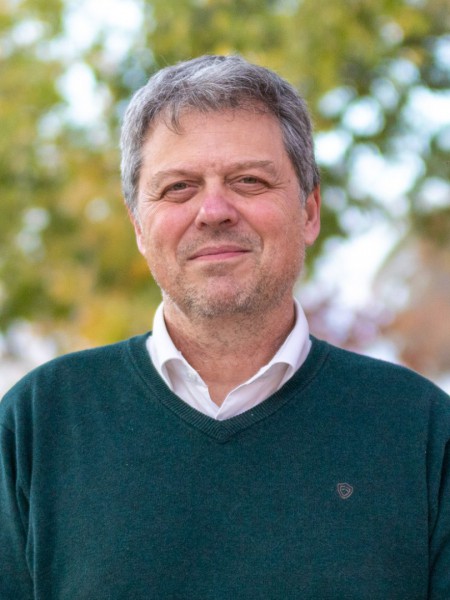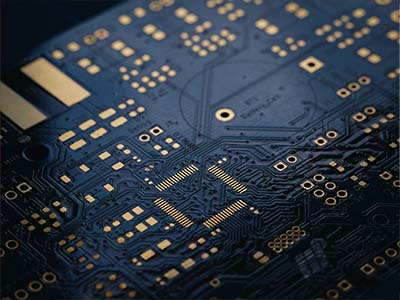Description
New generations of devices for tissue engineering (TE) should rationalize better the physical and biochemical cues operating in tandem during native regeneration, in particular at the scale/organizational-level of the stem cell niche. The understanding and the deconstruction of these factors (e.g. multiple cell types exchanging both paracrine and direct signals, structural and chemical arrangement of the extra-cellular matrix, mechanical signals…) should be then incorporated into the design of truly biomimetic biomaterials. ATLAS proposes rather unique toolboxes combining smart biomaterials and cells for the ground-breaking advances of engineering fully time-self-regulated complex 2D and 3D devices, able to adjust the cascade of processes leading to faster high-quality new tissue formation with minimum pre-processing of cells. Versatile biomaterials based on marine-origin macromolecules will be used, namely in the supramolecular assembly of instructive multilayers as nanostratified building-blocks for engineer such structures. The backbone of these biopolymers will be equipped with a variety of (bio)chemical elements permitting: post-processing chemistry and micro-patterning, specific/non-specific cell attachment, and cell-controlled degradation. Aiming at being applied in bone TE, ATLAS will integrate cells from different units of tissue physiology, namely bone and hematopoietic basic elements and consider the interactions between the immune and skeletal systems. These ingredients will permit to architect innovative films with high-level dialogue control with cells, but in particular sophisticated quasi-closed 3D capsules able to compartmentalise such components in a “globe-like” organization, providing local and long-range order for in vitro microtissue development and function. Such hybrid devices could be used in more generalised front-edge applications, including as disease models for drug discovery or test new therapies in vitro.
Coordinator
Coordination
Universidade de Aveiro (UA)
Partners
no
Outputs
Freestanding Magnetic Microtissues for Tissue Engineering Applications
Santos, LF; Patricio, SG; Silva, AS; Mano, JFLiquefied Microcapsules Compartmentalizing Macrophages and Umbilical Cord-Derived Cells for Bone Tissue Engineering
Nadine, S; Fernandes, I; Patricio, SG; Correia, CR; Mano, JFEngineering immunomodulatory hydrogels and cell-laden systems towards bone regeneration
Nadine, S; Correia, CR; Mano, JFCore-shell microcapsules: biofabrication and potential applications in tissue engineering and regenerative medicine
Ladeira, BM; Custodio, CA; Mano, JFMicroparticles orchestrating cell fate in bottom-up approaches
Maciel, MM; Correia, TR; Henriques, M; Mano, JFBioengineered Hierarchical Bonelike Compartmentalized Microconstructs Using Nanogrooved Microdiscs
Bjorge, IM; de Sousa, BM; Patricio, SG; Silva, AS; Nogueira, LP; Santos, LF; Vieira, SI; Haugen, HJ; Correia, CR; Mano, JFHipster microcarriers: exploring geometrical and topographical cues of non-spherical microcarriers in biomedical applications
Bjorge, IM; Correia, CR; Mano, JFThe Therapeutic Potential of Hematopoietic Stem Cells in Bone Regeneration
Oliveira, CS; Carreira, M; Correia, CR; Mano, JFOne-Step All-Aqueous Interfacial Assembly of Robust Membranes for Long-Term Encapsulation and Culture of Adherent Stem/Stromal Cells
Vilabril, S; Nadine, S; Neves, CMSS; Correia, CR; Freire, MG; Coutinho, JAP; Oliveira, MB; Mano, JFDouble network laminarin-boronic/alginate dynamic bioink for 3D bioprinting cell-laden constructs
Amaral, AJR; Gaspar, VM; Lavrador, P; Mano, JFAn Immunomodulatory Miniaturized 3D Screening Platform Using Liquefied Capsules
Nadine, S; Correia, CR; Mano, JFNatural Origin Biomaterials for 4D Bioprinting Tissue-Like Constructs
Costa, PDC; Costa, DCS; Correia, TR; Gaspar, VM; Mano, JFDesign of Protein-Based Liquefied Cell-Laden Capsules with Bioinspired Adhesion for Tissue Engineering
Gomes, MC; Costa, DCS; Oliveira, CS; Mano, JFMinimalist Tissue Engineering Approaches Using Low Material-Based Bioengineered Systems
Correia, CR; Bjorge, IM; Nadine, S; Mano, JFBioinstructive Layer-by-Layer-Coated Customizable 3D Printed Perfusable Microchannels Embedded in Photocrosslinkable Hydrogels for Vascular Tissue Engineering
Sousa, CFV; Saraiva, CA; Correia, TR; Pesqueira, T; Patricio, SG; Rial-Hermida, MI; Borges, J; Mano, JFGelMA/bioactive silica nanocomposite bioinks for stem cell osteogenic differentiation
Tavares, MT; Gaspar, VM; Monteiro, MV; Farinha, JPS; Baleizao, C; Mano, JFStrategies for re-vascularization and promotion of angiogenesis in trauma and disease
Goncalves, RC; Banfi, A; Oliveira, MB; Mano, JFNew insights into the biomimetic design and biomedical applications of bioengineered bone microenvironments
Oliveira, CS; Leeuwenburgh, S; Mano, JFProtein-olive oil-in-water nanoemulsions as encapsulation materials for curcumin acting as anticancer agent towards MDA-MB-231 cells
Bharmoria, P; Bisht, M; Gomes, MC; Martins, M; Neves, MC; Mano, JF; Bdikin, I; Coutinho, JAP; Ventura, SPMPartial Coated Stem Cells with Bioinspired Silica as New Generation of Cellular Hybrid Materials
Maciel, MM; Correia, TR; Gaspar, VM; Rodrigues, JMM; Choi, IS; Mano, JFFabrication of Quasi-2D Shape-Tailored Microparticles using Wettability Contrast-Based Platforms
Neto, MD; Stoppa, A; Neto, MA; Oliveira, FJ; Gomes, MC; Boccaccini, AR; Levkin, PA; Oliveira, MB; Mano, JFCapacitive interdigitated system of high osteoinductive/conductive performance for personalized acting-sensing implants
de Sousa, BM; Correia, CR; Ferreira, JAF; Mano, JF; Furlani, EP; dos Santos, MPS; Vieira, SIAdvanced Bottom-Up Engineering of Living Architectures
Gaspar, VM; Lavrador, P; Borges, J; Oliveira, MB; Mano, JFBiomedical applications of laminarin
Zargarzadeh, M; Amaral, AJR; Custodio, CA; Mano, JFCell Encapsulation Systems Toward Modular Tissue Regeneration: From Immunoisolation to Multifunctional Devices
Correia, CR; Nadine, S; Mano, JFEnzymatically degradable, starch-based layer-by-layer films: application to cytocompatible single-cell nanoencapsulation
Moon, HC; Han, S; Borges, J; Pesqueira, T; Choi, H; Han, SY; Cho, H; Park, JH; Mano, JF; Choi, ISFabrication of Artificial Nanobasement Membranes for Cell Compartmentalization in 3D Tissues
Zeng, JF; Sasaki, N; Correia, CR; Mano, JF; Matsusaki, MHuman Platelet Lysates-Based Hydrogels: A Novel Personalized 3D Platform for Spheroid Invasion Assessment
Monteiro CF, Santos SC, Custodio CA, Mano JFMechanochemical Patternable ECM-Mimetic Hydrogels for Programmed Cell Orientation
Lavrador, P; Gaspar, VM; Mano, JFMulti-layer pre-vascularized magnetic cell sheets for bone regeneration
Silva, AS; Santos, LF; Mendes, MC; Mano, JFPerinatal tissues and cells in tissue engineering and regenerative medicine
Deus, IA; Mano, JF; Custodio, CACell Behavior within Nanogrooved Sandwich Culture Systems
Bjorge, IM; Salmeron-Sanchez, M; Correia, CR; Mano, JFHydrogel 3D in vitro tumor models for screening cell aggregation mediated drug response
Monteiro, MV; Gaspar, VM; Ferreira, LP; Mano, JFComplex-shaped magnetic 3D cell-based structures for tissue engineering
Santos, LF; Silva, AS; Mano, JFModeling of Cell-Mediated Self-Assembled Colloidal Scaffolds
Dias, CS; Custodio, CA; Antunes, GC; da Gama, MMT; Mano, JF; Araujo, NAMDynamic Electrophoretic Assembly of Metal-Phenolic Films: Accelerated Formation and Cytocompatible Detachment
Yun, G; Youn, W; Lee, H; Han, SY; Oliveira, MB; Cho, H; Caruso, F; Mano, JF; Choi, ISGeometrically Controlled Liquefied Capsules for Modular Tissue Engineering Strategies
Nadine, S; Patricio, SG; Barrias, CC; Choi, IS; Matsusaki, M; Correia, CR; Mano, JFPhysical immobilization of particles inspired by pollination
Santos, LF; Silva, AS; Correia, CR; Mano, JFLiquefied Microcapsules as Dual-Microcarriers for 3D+3D Bottom-Up Tissue Engineering
Correia, CR; Bjorge, IM; Zeng, JF; Matsusaki, M; Mano, JFNanogrooved microdiscs for bottom-up modulation of osteogenic differentiation
Bjorge, IM; Choi, IS; Correia, CR; Mano, JFScreening of perfused combinatorial 3D microenvironments for cell culture
Lopes, D; Fernandes, C; Nobrega, JM; Patricio, SG; Oliveira, MB; Mano, JFMicroparticles in Contact with Cells: From Carriers to Multifunctional Tissue Modulators
Neto, MD; Oliveira, MB; Mano, JFIn-air production of 3D co-culture tumor spheroid hydrogels for expedited drug screening
Antunes, J; Gaspar, VM; Ferreira, L; Monteiro, M; Henrique, R; Jeronimo, C; Mano, JFCell encapsulation in liquified compartments: Protocol optimization and challenges
Correia, CR; Ghasemzadeh-Hasankolaei, M; Mano, JFRecent advances on open fluidic systems for biomedical applications: A review
Oliveira, NM; Vilabril, S; Oliveira, MB; Reis, RL; Mano, JFStrategic Advances in Formation of Cell-in-Shell Structures: From Syntheses to Applications
Kim, BJ; Cho, H; Park, JH; Mano, JF; Choi, ISStimuli-responsive nanocarriers for delivery of bone therapeutics - Barriers and progresses
Lavrador, P; Gaspar, VM; Mano, JFBioinspired bone therapies using naringin: applications and advances
Lavrador, P; Gaspar, VM; Mano, JFBioinstructive Naringin-Loaded Micelles for Guiding Stem Cell Osteodifferentiation
Lavrador, P; Gaspar, VM; Mano, JFMultifunctional laminarin microparticles for cell adhesion and expansion
Martins, CR; Custodio, CA; Mano, JFBone physiology as inspiration for tissue regenerative therapies
Lopes, D; Martins-Cruz, C; Oliveira, MB; Mano, JFBioactive Hydrogel Marbles
Leite, AJ; Oliveira, NM; Song, WL; Mano, JFDesign of spherically structured 3D in vitro tumor models -Advances and prospects
Ferreira, LP; Gaspar, VM; Mano, JFBioinspired multilayer membranes as potential adhesive patches for skin wound healing
Sousa, MP; Neto, AI; Correia, TR; Miguel, SP; Matsusaki, M; Correia, IJ; Mano, JFSequentially Moldable and Bondable Four-Dimensional Hydrogels Compatible with Cell Encapsulation
Oliveira, MB; Bastos, HXS; Mano, JFIron Gall Ink Revisited: In Situ Oxidation of Fe(II)-Tannin Complex for Fluidic-Interface Engineering
Lee, H; Kim, WI; Youn, W; Park, T; Lee, S; Kim, TS; Mano, JF; Choi, ISThe influence of surface modified poly(L-lactic acid) films on the differentiation of human monocytes into macrophages
Correia, CR; Gaifem, J; Oliveira, MB; Silvestre, R; Mano, JFSolvent-Free Strategy Yields Size and Shape-Uniform Capsules
Costa, AMS; Mano, JFMesenchymal Stem Cells Relevance in Multicellular Bioengineered 3D In Vitro Tumor Models
Ferreira, LP; Gaspar, VM; Henrique, R; Jeronimo, C; Mano, JFCell Surface Engineering to Control Cellular Interactions
Custodio, CA; Mano, JFSponsors






